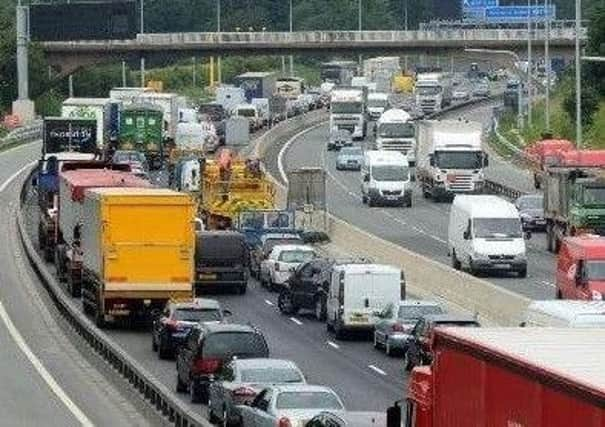Carillion collapse sparks blame game


News that the UK’s largest construction services firm had fallen into administration recently seemed to come as a surprise to many in local government, despite several profit warnings issued in the months preceding its demise.
Within hours of Carillion’s collapse, the tone of political debate turned to nationalisation, with opposition figures calling on the government to nationalise private companies such as Carillion.
Advertisement
Hide AdAdvertisement
Hide AdHerein lies a political debate that I suspect will span the duration of this parliament: the role of the private sector in delivery state-funded infrastructure. It’s a debate that frustrated politicians in the 1970s and - with the return of militant hard-left socialism to British politics, moderate politicians will once again be forced to shine a light on the shortcomings of nationalisation.
The Centre for Policy Studies last week published a report predicting that the full blown renationalisation of most public utilities would add £176 billion to the national debt, increasing overall debt levels to £1.73 trillion – the equivalent of around £6,500 for every household in Britain.
It may, therefore, soon be time to make the case for private sector involvement in the delivery of state-funded infrastructure projects.
By 2020, the government will have spent over £13 billion modernising transport in the North. In the short-term, record investment into new trains on the TransPennine route, including £3 billion upgrading the route between York, Leeds and Manchester. In the longer-term £55 billion will be spent on a new high speed network linking the North’s core cities, improving rail services for commuters here in Yorkshire. That’s thousands of extra seats on commuter services in the region, with new faster and more frequent services between the Midlands and London to Leeds.
Advertisement
Hide AdAdvertisement
Hide AdThese public-private partnerships will support 100,000 jobs and 2,000 apprenticeships, as well as a new technology and engineering college in Doncaster to upskill workers and support the delivery of Northern Powerhouse Rail; an east-west rail line connecting Liverpool, Manchester, Leeds, Sheffield and Hull.
On the road network the government is set to spend over £2.9 billion on major schemes including the widening of the M62 to four lanes between Leeds and Manchester – helping end the nightmare of the daily peak time traffic jam on the M62.
And on public transport a new era of environmentally friendly transport is dawning, with York set to receive funding for low emission schemes and West Yorkshire rolling out a £2 million scheme to get more electric taxis serving customers.
Planned central government transport investment is therefore set to reach £1,039 per person in the North compared to £1,029 in the South. A welcome change to what has gone before.
Advertisement
Hide AdAdvertisement
Hide AdInvestment on this scale, on projects of such complexity, could not be delivered without private sector involvement. Major civil engineering schemes need access to the best talent in the sector and new transport schemes need third party investment.
Those who remember the state of British Rail will remember that investment in rolling stock was almost non-existent under nationalisation.
To nationalise a failed company because the government had entered into a contract, is a dangerous road down which our children will be saddled with more debt.